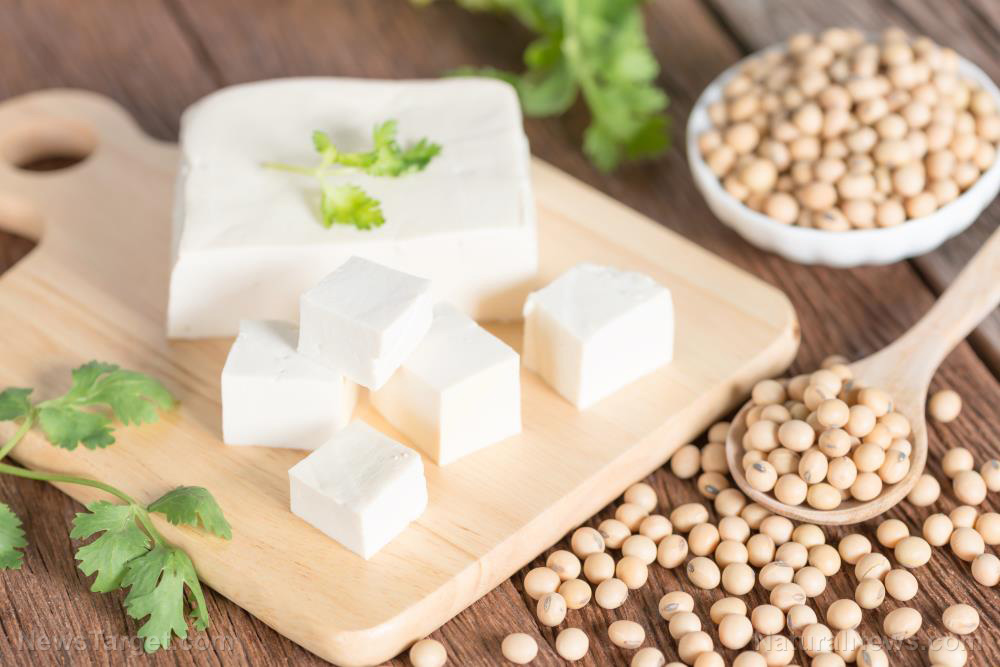Are plant estrogens really the answer for menopausal women in need of natural hormone support?
06/10/2019 / By Michelle Simmons

Isoflavones, also referred to as phytoestrogens or plant estrogens, are natural compounds found in plants and plant-based foods. They have a very similar structure to that of estrogen and they work like the hormone. For this reason, some women take them to relieve menopause symptoms.
The estrogen receptors of the body treat plant estrogens as if they were human estrogen. Plant estrogens may have a weaker estrogen-like effect than those naturally produced by the body because they don’t bind as firmly. Nonetheless, taking phytoestrogens is much safer than taking hormone replacement therapy.
The levels of hormones, particularly estrogen, of women decline as they age. Because of this disruption in the hormonal balance, they tend to suffer from menopause symptoms, such as in hot flashes, fatigue, vaginal dryness, and more. The declining levels of estrogen also have long-term side effects, increasing the risk of heart disease and osteoporosis.
Surprisingly, isoflavones don’t just help increase low estrogen levels, they also help balance your hormones when you have too much estrogen, as seen in certain cancers.
Do plant estrogens work?
Evidence suggests that phytoestrogens can be used as alternative treatments for menopause symptoms.
Researchers from Taiwan carried out a meta-analysis that assessed the efficacy of phytoestrogens for easing menopause symptoms. In their study, they gathered 15 randomized controlled trials that studied perimenopausal or postmenopausal women experiencing menopause symptoms and used an oral phytoestrogen – such as isoflavones, coumestrol, soy, and red clover – as an intervention. The researchers also measured the frequency of hot flashes and the potential side effects of the treatment. Overall, the researchers found that phytoestrogens can reduce the frequency of hot flashes in menopausal women, without causing serious side effects. The team published their findings in the journal Climacteric.

Another meta-analysis, which was published in The Journal of The North American Menopause Society, revealed that plant estrogens can reduce the frequency and severity of hot flashes. The study authors examined the efficacy of soybean isoflavones in treating hot flashes in perimenopausal and postmenopausal women. Based on the data they gathered, they found that the intake of soy isoflavones for six weeks to 12 months could dramatically reduce the frequency of hot flashes by about 21 percent compared with placebo. They found that it could also reduce the severity of hot flashes by 26 percent. (Related: Natural menopause treatment with herbs, food remedies and homeopathy relieves cause of symptoms.)
Adding non-GMO fermented soy products to your diet
If you want to try soy isoflavones, it’s better to get fermented soy products, such as miso, natto, and tempeh than whole soy foods to avoid bloating and constipation. In addition, fermented soy products are more delicious, have more nutritional value, and are easier to digest because of the fermentation process. Moreover, fermented soy products have fewer phytates that can prevent your body from absorbing important minerals, such as calcium and iron. You can add soy products to your diet by replacing some of the meat you eat with tempeh or using soymilk instead of cow milk. Soy isoflavones are also available as supplements. (Always choose organic products to avoid GMO soy.)
Read more stories and studies on plant estrogens and their benefits to menopausal women at WomensHealth.news.
Sources include:
Submit a correction >>
Tagged Under:
alternative medicine, estrogens, fatigue, food cures, food is medicine, functional food, hormone support, hormones, hot flashes, isoflavones, Menopause, natural cures, natural hormone support, natural medicine, natural remedies, Phytoestrogens, plant estrogens, remedies, soy isoflavones, supplements, vaginal dryness, women's health
This article may contain statements that reflect the opinion of the author





















